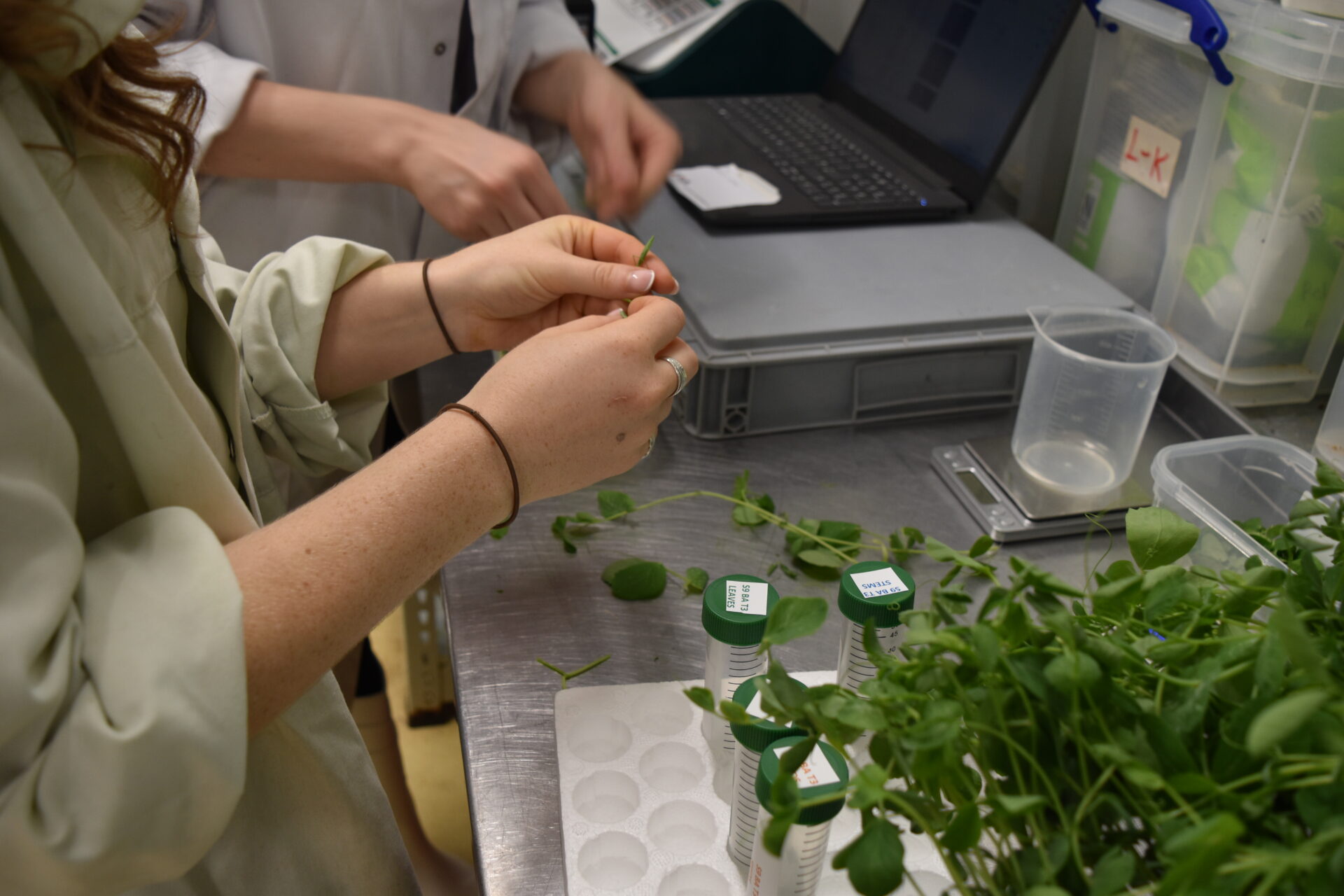Vitamin B12 plays a critical role in various health aspects of the body, from nerve function to cell metabolism.
Historically, however, the nutrient has been hard to obtain outside of animal-based meat, fish and dairy products. Rising food insecurity globally as well as growing consumer demand for cleaner diets has led some to seek new ways of incorporating B12 into daily diets.
In the UK, researchers have used aeroponic indoor farming to grow pea shoots biofortified with Vitamin B12, and say the vitamin holds “immense promise for biofortification.”
“As we’re increasingly being encouraged to move towards more plant-rich diets for both human and planetary health, B12 is becoming a nutrient of great interest. Biofortification can unlock new sources of this essential nutrient,” notes the research.
The project includes scientists from the John Innes Centre, aeroponics startup LettUs Grow and the Quadram Institute and is funded by UK Research and Innovation’s Biotechnology and Biological Sciences Research Council (BBSRC).

The ‘crucial role’ of B12
The World Health Organization (WHO) defines biofortification as “an agricultural-nutrition intervention that uses conventional breeding, agronomic, and transgenic techniques to increase the density of vitamins and minerals in staple food crops.”
As opposed to regular fortification, which adds nutrients to the foods themselves (e.g., adding vitamins into maize or corn flour), biofortification “happens to the growing process as opposed to being added in post production,” says India Langley, food systems research and PR lead at LettUsGrow.
In the case of B12, which the project’s researchers are focused on for now, biofortification can make a vitamin typically only found in animal-based products more widely available to more demographics.
Biofortification is widely seen as a powerful tool for fighting malnutrition, especially in areas where access to nutritious food is limited. For example, each B12-fortified pea shoot in the research project contain the recommended daily amount of the vitamin.
“This is important as B12 plays a crucial role in various bodily functions, including red blood cell formation, nerve function, and DNA synthesis,” explains Prof. Martin Warren, chief scientific officer at the Quadram Institute.
Even those with adequate access to nutrition stand to benefit, the project’s research suggests. Warren notes that while vitamin B12 supplements are available in many regions, “some people may find it more convenient and natural to obtain essential nutrients directly from whole foods. Fortified plants hold the potential to provide a more integrated way to meet nutritional requirements.”
“Eating food is part of your sort of average everyday; buying supplements is an additional supplementary thing you might do,” says Langley, who adds that more B12-fortified foods mean consumers could “roll that cost of the extra nutrition into daily shopping habits as well.”
Whether there’s a cost benefit is yet to be determined, since the project is still a research trial.
“You’re not going to have a final cost at this point, but the hope is that it’s a low-cost solution, which also doesn’t mean buying something extra.”

Scaling with aeroponics
Researchers are growing the pea shoots via LettUsGrow’s aeroponic indoor farming system, which relies on mist to deliver water and nutrients to crops.
The system uses sound traveling at frequencies above 20,000 Hz (above the range of human hearing) to shake water until it disperses into the mist. The system is unique to LettUsGrow.
It has a few benefits. Aeroponics tend to be very precise in terms of nutrient delivery, which aids in the biofortification process. The research also suggests that greenhouses and vertical farms, which can accommodate more plants, are viable options for growing biofortified food at scale.
Langley notes that “aeroponics itself helps the plants grow significantly faster — from 20% faster to 200% faster depending on what the application of the aeroponics is.”
“In a containerized solution, you might see as much as 200% faster increase in growth rate. In larger scale [indoor farms], it’s probably closer to 20, which helps get the mass of pea shoots you would need if you’re going to be delivering this at scale.”

A new plant-based diet?
Langley says another aspect of the project researchers are excited about is the role of biofortified foods in plant-rich diets and reducing intake of animal-based products.
“Unfortunately, a lot of the B12 in people’s diets is almost exclusively from animal sources,” she notes.
The point is especially relevant now, when many are voicing concern over the lack of nutritional benefits in many plant-based meat and dairy analogs.
Using biofortified pea shoots, says Langley, means “you can get that vital nutrient into people’s diets through a plant based means. So it’s quite significant, particularly for those populations who are not having meat or dairy or eggs in their diet.”
Beyond B12
The current research project is focused on B12, but Langley says there are plenty of other nutrients to consider when it comes to biofortified foods.
“We are looking at the different ways that this can be scaled up,” she says.
The John Innes Centre, for example, recently launched its own biofortification hub. Some projects include vitamin D-enriched purple tomatoes and increasing the levels of iron in wheat.
“They’re the establishment of that hub means that they’re really looking very expansively into where fortification can happen across our food supply chains,” says Langley.
“And by bringing the expertise [with LettUs Grow and the Quadram Institute] together, it’s really unlocked it in a way that any one individual institution wouldn’t have been able to.”
